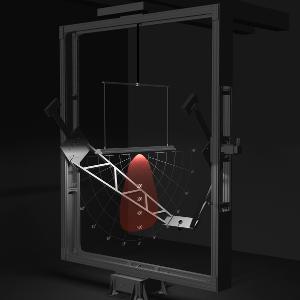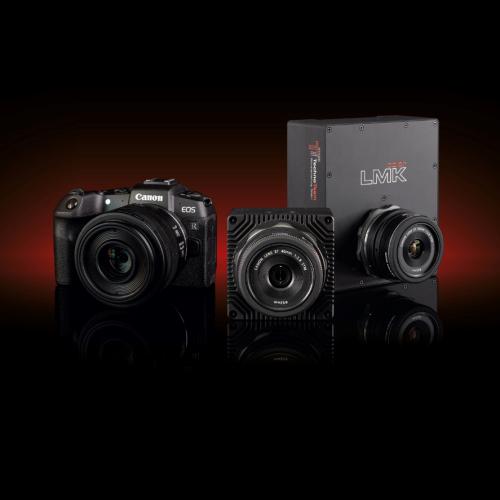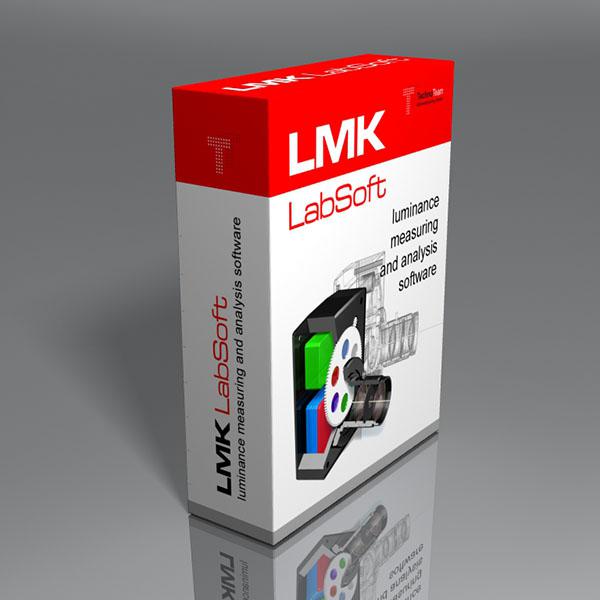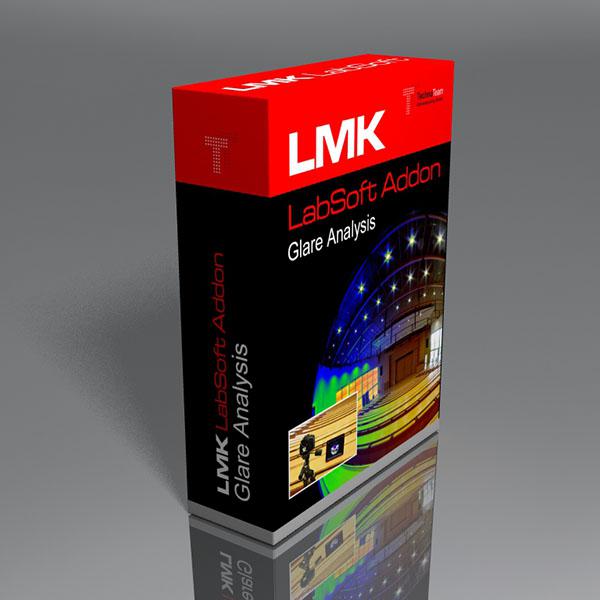Calculation of corrected UGR values of luminaires with inhomogeneous luminance distributions according to CIE 232:2019
The DUGR Calculator is a free and open-source test environment written in Python for calculating UGR characteristic values according to CIE 232:2019. Since there was previously no universal program for calculating these values from luminance images, the DUGR Calculator was developed by TechnoTeam to facilitate a broad application of the method and to test the practical application.
The project home is located at GitHub.
https://github.com/TechnoTeam-Bildverarbeitung-GmbH/DUGR_GUI
A standalone version is available for download (see below).

RELEVANT PRODUCTS
Publications
Glare assessment for research and development of measurement methods
Przeglad Elektrotechniczny
Glare is one of the most important parameter of lighting quality. Despite the passage of time from the beginning of glare research, no standard of conducting laboratory experiments was proposed. In the article the review of solutions related to glare assessment is presented. The method of conducting research on glare is also described. The authors pay attention to the most important aspects in the methodology of glare assessment for the experimental research on glare and glare assessment based on UGR measurements. The tests of the new algorithm for UGR calculation is presented — algorithm for precise identification and extraction of glare source area from HDR image.
Ist eine objektive Beschreibung der Störempfindung bei künstlicher Beleuchtung möglich?
LICHT 7/8 2015, p. 70-74
Die visuelle Erfassung von Information durch das menschliche Auge kann durch helle Lichtquellen gestört werden. Diese Effekte werden unter dem Sammelbegriff der Blendung zusammengefasst. In diesem Beitrag wird diskutiert, ob zum einen die Simulation und Vorhersage eines belastbaren Blendungsurteils und zum anderen die messtechnische Überprüfung einer realen Beleuchtungssituation anhand der vorhandenen Messdaten, Messmittel und Messmethoden überhaupt möglich sind. Dabei wird auf aktuelle Arbeiten zur messtechnischen Bewertung von subjektiven Blendungsurteilen in Innenräumen Bezug genommen.
Measurement of the Unified Glare Rating (UGR) based on using ILMD
Proceedings of the 28th Session of the CIE, Manchester; Vol. 1
Imaging luminance measuring devices (ILMD) are widely used in different fields of application. The assessment of glare caused by sun light and technical lighting installations for outdoor and indoor applications has meanwhile become reality. Measuring the discomfort glare for artificial indoor lighting installation is a fixed requirement of current standards. The aim of this study is to develop a simple and very well suitable software algorithm to fulfil those requirements by using the ILMD measuring technique comfortably. This paper also includes a comparison of currently existing equations for the discomfort glare regarding their technical requirements to be met by the ILMD and also the validation of new ideas and methods for analysis and evaluation. Keywords: Unified Glare Rating (UGR), Imaging Luminance Measuring Device (ILMD), discomfort glare
Medição de luminância por meio de imagens para avaliação do ofuscamento
Eletricidade Moderna, Brasilien, März 2015, S. 114–121
A medição do incremento limiar, ou seja, da perda de visibilidade causda pelo ofuscamento, será uma exigência das normas futuras. Atualmente, o ofuscamento causado por instalaçoes de iluminação artificial ou plea luz natural já tem sido avaliado tanto em aplicaçoes internas quanto externas. Exte artigo descreve uma ferramente de software que utiliza dispositivos de medição de luminância por meio de iamgens para medir o incremento limiar.
Einsatz von bildgebenden Leuchtdichtemesskameras bei der Bewertung von Blendungssituationen
Licht 2012 : 20. Gemeinschaftstagung, 11. bis 14. September 2012, Technische Universität Berlin ; Tagungsband. - Berlin : LiTG. - 2012
Über die Möglichkeiten der Bestimmung von Blendungskennzahlen mit Hilfe von bildauflösenden Leuchtdichtemesskameras (LMK) wurde schon mehrfach berichtet /7/ /10/ /11/ /12/ /13/. Inzwischen sind LMK's weltweit Stand der Technik und werden von mehreren Herstellern in unterschiedlichen Konfigurationen angeboten. Aktuell auf dem Markt angebotene LMK's besitzen ähnliche Eigenschaften, wie punktweise messende Leuchtdichtemesser der Klasse B, nach DIN 5032 Teil 7. Bei der Überarbeitung der LiTG Schrift 12.3 /14/ im vorigen Jahr und bei der derzeitigen Überarbeitung der LAI /1/ wurden Hinweise zur Nutzung von LMK's aufgenommen. Deshalb und auf Grund der in den letzten Jahren erfolgten Verbesserung der technischen Parameter von LMK's sollen hiermit erneut deren Einsatzmöglichkeiten zur Bestimmung von Blendungskennzahlen vorgestellt werden.
Quantitative Blendungsbewertung: Blendungskennzahlen mit bildauflösender Leuchtdichtemesstechnik
Licht Vol. 64, No. 7/8 (2012)
Die Blendung ist ein wichtiges Gütemerkmal in der Außenbeleuchtung, die deshalb zu bewerten und zu minimieren ist. Zur Bewertung stehen verschiedene Kennzahlen zur Verfügung, die nur aufwändig mit konventioneller Messtechnik in der Praxis erfasst werden können. Mit bildauflösender Leuchtdichtemesstechnik kann hingegen dieser Messprozess vereinfacht werden. Der Artikel zeigt am Beispiel der Lichtimmission, wie dadurch beispielsweise das Blendmaß ks einfach und ausreichend genau bestimmt werden kann. Weitere Kennzahlen könnten bildaufgelöst gemessen werden, womit aber eine entsprechende Überarbeitung der Normen einhergehen müsste.
Assessment of daylit glare parameters with ILMDs and image processing
The 2nd CIE Expert Symposium on Appearance - When Appearance meets Lighting ..., 8-10 September 2010
Image luminance measuring devices (ILMD, [1]) are widely used in different fields of application. The assessment of glare caused by artificial lighting installations for outdoor and indoor applications is meanwhile reality. To evaluate discomfort glare under daylit conditions, new glare assessment methods using luminance images have recently been developed. The objective of this study is to analyze ongoing researches of mostly prototypical procedures and to realize their practical application for field measurements by using ILMD in the governmental or commercial sector. The practical application of the DGP was the focus of this study.
Blendungsbewertung mit bildauflösender Lichtmesstechnik in Theorie und Praxis
Lux Junior 2007: Tagungsband; 8. Forum für den Lichttechnischen Nachwuchs, 21. bis 23. September 2007, Dörnfeld/Ilm. - Ilmenau : Techn. Univ.. - 2007
Erfassung von Blendwerten mittels bildauflösender Leuchtdichtemesstechnik
Licht 2006, 11.09.2006, Bern, 2006
- Type:
- Software
- Applications:
- Human Centric Lighting Light sources & luminaires
- Measurands:
- Human Centric Lighting
- Tasks:
- Development & Industry Science & Research



